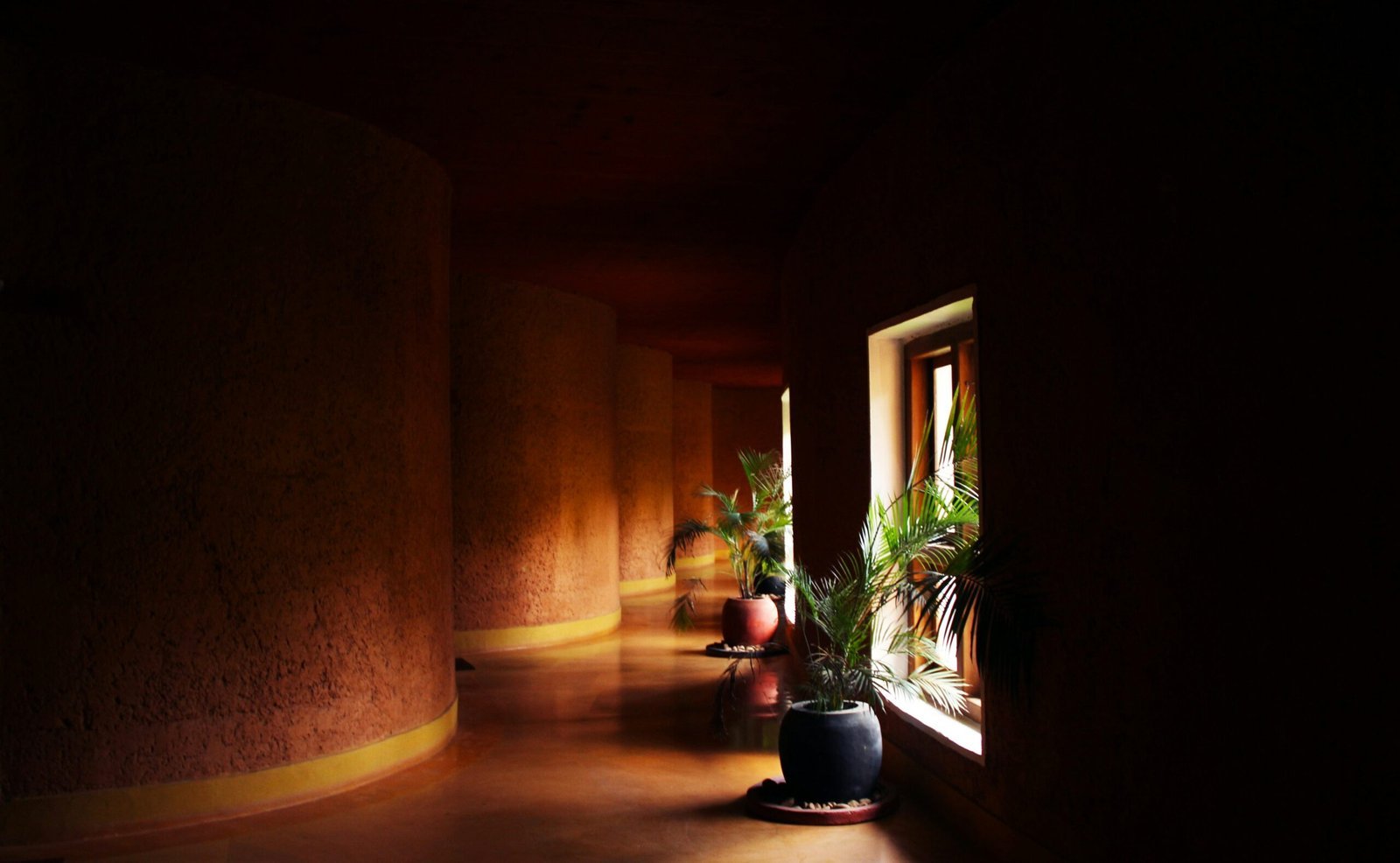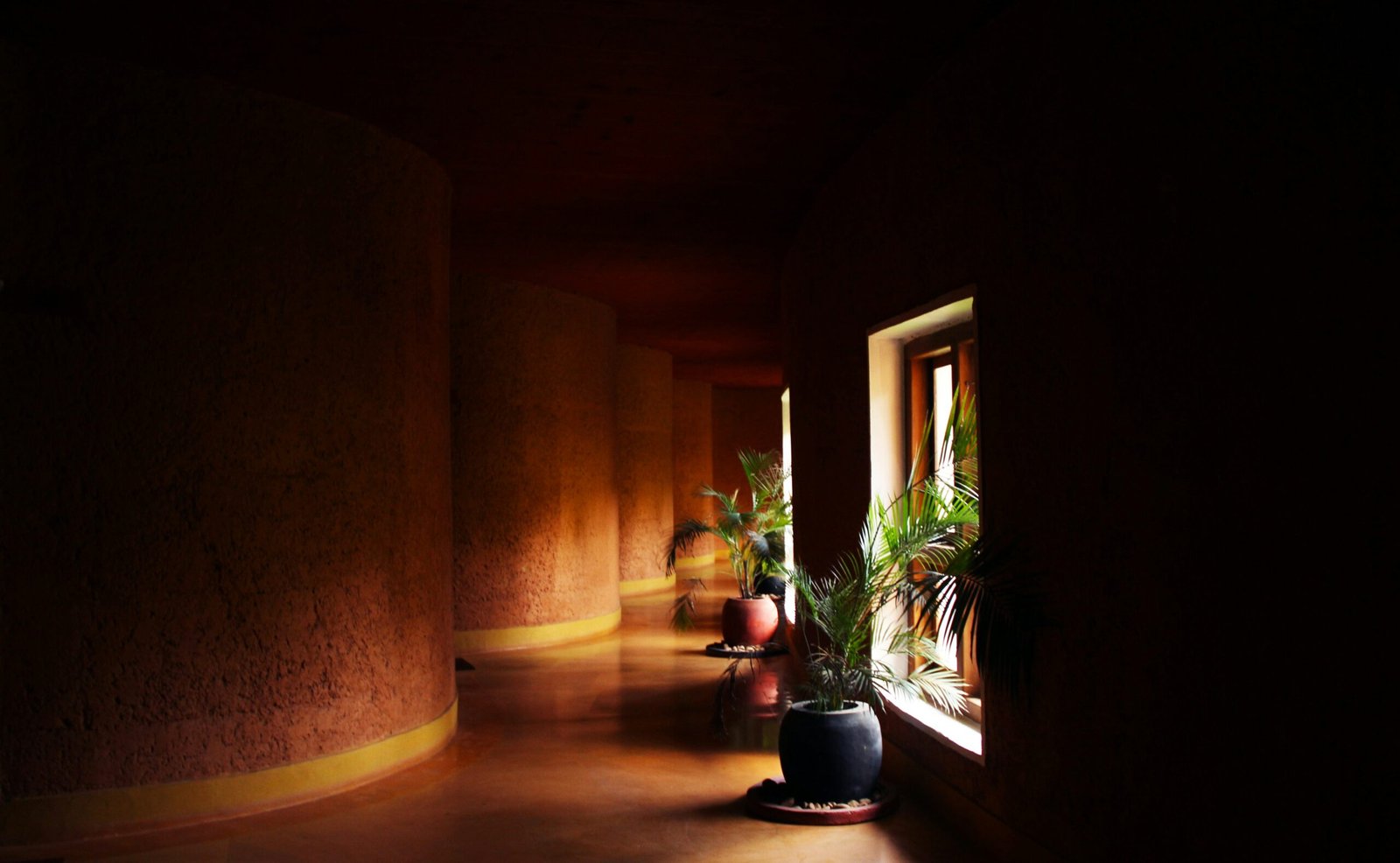
Introduction to Eco-Luxury
In recent years, the concept of eco-luxury has gained significant traction among travelers worldwide. This rising trend embodies the harmonious fusion of sustainability with the opulent comforts traditionally associated with high-end accommodations. As environmental awareness intensifies, travelers increasingly seek out eco-hotels, prioritizing properties that not only cater to indulgence but also promote ecological responsibility.
Eco-luxury is characterized by its commitment to sustainable practices while providing luxurious amenities and services. High-end travelers are no longer satisfied with mere aesthetic appeal; they seek accommodations that are thoughtfully designed to minimize environmental impact. This includes the use of eco-friendly materials in interiors, renewable energy sources such as solar power, and initiatives aimed at reducing waste, such as composting programs and water conservation efforts. By focusing on sustainability, eco-hotels not only enhance their allure to discerning guests but also contribute positively to the environment.
Criteria for Luxury Eco-Hotels
Luxury eco-hotels represent a harmonious blend of comfort and sustainability, characterized by specific criteria that ensure both opulence and environmental responsibility. Primarily, sustainable practices are at the core of these hotels. Such practices encompass the use of renewable energy sources, comprehensive recycling programs, and policies aimed at minimizing waste. By adopting these approaches, luxury eco-hotels significantly reduce their carbon footprint while still providing high-end amenities.
Local materials play a pivotal role in the construction and decoration of luxury eco-hotels. Sourcing building materials from the surrounding environment not only supports local economies but also enhances the hotel’s connection to its natural setting. This commitment to local sourcing can often manifest in beautiful artisanal furnishings and decor that reflect the region’s culture and heritage, offering guests an authentic experience.
Energy efficiency is another critical component of luxury eco-hotels. Many establishments implement cutting-edge technologies, such as energy-efficient lighting and smart climate control systems, ensuring that energy consumption is minimized. These hotels also utilize efficient insulation techniques to maintain comfortable indoor temperatures, further reducing reliance on heating and cooling systems.
Water conservation efforts are equally prioritized, with many eco-hotels showcasing innovative systems designed to collect and reuse water. For instance, rainwater harvesting and greywater recycling systems help to lessen the overall demand on local water resources. Such initiatives not only support sustainable practices but also highlight the commitment of luxury eco-hotels to preserving the environment.
Finally, community involvement stands as a crucial aspect of luxury eco-hotels. Many establishments engage in partnerships with local communities, supporting social enterprises or employing local staff. This not only enriches the guest experience with genuine local insights but also fosters economic growth within the surrounding region. Together, these criteria create an unparalleled luxury experience that is equally beneficial for the environment and local communities.
Top Luxury Eco-Hotels by Region
Luxury eco-hotels have emerged as a promising choice for travelers seeking both high-end amenities and sustainable practices. Here’s a look at some of the finest options categorized by region, each exemplifying a commitment to environmental consciousness while offering elegant accommodations.
North America: In the United States, the Post Ranch Inn in Big Sur, California combines stunning views with sustainable building practices and local organic cuisine. The resort’s design aligns with its natural surroundings, promoting biodiversity. In Canada, Fogo Island Inn stands out for its community-driven initiatives, focusing on local art and traditions, while emphasizing ecological preservation. Each property showcases its unique local flora and fauna.
Europe: Europe boasts several stunning eco-hotels, including the Amanzoe in Greece, known for its integration of natural elements and sustainable architecture. The hotel promotes local agricultural practices by sourcing food from nearby farms. In Sweden, the Kosta Boda Art Hotel not only features exquisite glass art but also emphasizes energy efficiency and social responsibility within the community.
Asia: In Asia, the Soneva Jani in the Maldives exemplifies luxury and sustainability, offering water villas that use solar energy and a strict marine conservation policy. Moreover, the Six Senses Zil Pasyon on Félicité Island emphasizes eco-sensitive practices, including water recycling and a commitment to preserving the island’s biodiversity.
Africa: Africa’s rich landscapes are home to eco-friendly lodges like the Sanctuary Swala in Tanzania, a prime example of luxury in the wild, emphasizing wildlife conservation through responsible tourism. In South Africa, The Silo Hotel exemplifies green architecture and local engagement by supporting community initiatives while providing stunning views of Cape Town.
South America: Finally, in South America, the Inkaterra Machu Picchu Pueblo Hotel in Peru is designed to reflect local culture and biodiversity, using sustainable materials and practices that protect the surrounding rainforest. It offers guests an opportunity to engage with nature while minimizing their environmental impact.
These luxury eco-hotels represent a commitment to sustainability, showing that elegance and responsibility can harmoniously coexist across diverse regions of the world.
Innovative Sustainable Features
Luxury eco-hotels are at the forefront of integrating innovative sustainable features that elevate both environmental stewardship and guest experience. One notable feature is the implementation of solar power systems. By harnessing renewable energy, these hotels not only reduce their carbon footprint but also provide guests with an immersive experience in sustainable living. The use of solar energy can power amenities, heating systems, and even microgrids, ensuring that the operation is as sustainable as possible, while enhancing the comfort and experience of visitors.
Another significant aspect of these eco-friendly accommodations is the rainwater harvesting systems. Through cleverly designed infrastructures, rainwater is collected, treated, and reused for landscaping or non-potable purposes, considerably conserving water resources. By allowing guests to witness water conservation methods in action, luxury eco-hotels make sustainability a tangible aspect of their stay, promoting an awareness of environmental issues.
Furthermore, many eco-hotels feature organic gardens that not only supply fresh ingredients for their kitchens but also serve as interactive spaces for guests. This cultivation of sustainable practices educates visitors on the importance of local sourcing and organic farming methods, fostering a sense of connection to the land. These gardens, often designed as thriving ecosystems, enhance the hotel environment and provide unique culinary experiences, showcasing seasonally inspired menus.
Lastly, advanced waste management solutions are commonly adopted, which include composting systems and recycling initiatives. These practices minimize landfill contributions, ensuring that waste is processed in an environmentally friendly manner. Guests often appreciate the transparency of these systems; they feel involved in the hotel’s sustainable operations, enriching their overall experience.
In essence, the synergistic approach to luxury and sustainability found in eco-hotels enhances not only the ecological footprint but also provides an elevated experience for discerning travelers who value environmental consciousness.
Notable Eco-Friendly Certifications
As the hospitality industry increasingly embraces sustainability, various eco-friendly certifications have emerged as benchmarks for luxury hotels committed to environmental responsibility. These certifications not only enhance hotel operations but also influence guest perceptions, fostering a deeper appreciation for eco-conscious practices.
One of the most recognized standards is the Leadership in Energy and Environmental Design (LEED) certification, which evaluates buildings on their performance in sustainability. Hotels achieving LEED certification demonstrate a commitment to energy efficiency, water conservation, and the use of sustainable materials. This certification is particularly important for luxury establishments that aim to attract eco-conscious travelers while simultaneously reducing their carbon footprint.
Another notable certification is the Green Globe certification, which emphasizes sustainable tourism and encourages hotels to adhere to strict environmental performance criteria. It encompasses various aspects, including waste management, resource conservation, and community engagement. Hotels that earn this designation not only showcase their dedication to sustainable practices but also reassure guests of their commitment to preserving cultural and natural heritage.
The Rainforest Alliance is also an important player in this space, focusing on land use and the impact of hotel operations on biodiversity. By adhering to the Rainforest Alliance’s standards, luxury hotels can demonstrate their commitment to protecting ecosystems, supporting local communities, and promoting responsible tourism. The presence of such certifications enhances the credibility of hotels, making them more appealing to guests who prioritize sustainability.
Collectively, these eco-certifications serve as a guiding framework for luxury hotels striving to improve their environmental performance. They not only influence operational practices but also play a significant role in shaping guest expectations, ultimately driving the trend of sustainable luxury in the hospitality industry.
Guest Experiences at Luxury Eco-Hotels
Guests at luxury eco-hotels often find themselves immersed in unique experiences that not only emphasize comfort and elegance but also foster a deeper understanding of sustainability and local cultures. These establishments are designed to offer more than just lavish accommodations; they create a holistic environment that allows travelers to engage with the natural world responsibly. Eco-tourism is a prominent theme here, where guests can participate in guided nature walks, birdwatching trips, and workshops focusing on local conservation initiatives. Such activities not only contribute to environmental education but also instill a sense of responsibility in visitors.
Another significant aspect of the guest experience at luxury eco-hotels is the opportunity to immerse oneself in the local culture. Many of these hotels engage with indigenous communities to curate authentic cultural experiences that may include traditional cooking classes, artisan workshops, and village tours. Travelers often appreciate these experiences for enabling them to connect with the local way of life, giving them insights into traditions, beliefs, and practices that may have remained unheard otherwise. This cultural immersion empowers guests to not only enjoy their stay but also support and promote local artisans and efforts to preserve cultural heritage.
Wellness retreats are another highlight at many luxury eco-hotels, offering a range of services that aim to rejuvenate both the body and mind. From spa treatments that utilize organic, locally sourced ingredients to yoga classes held amidst serene natural surroundings, these experiences promote a sense of well-being aligned with the hotel’s commitment to sustainability. Guests have reported transformative experiences, often noting how their stays at eco-hotels prompted introspection and a deeper appreciation for nature. The combination of indulgent amenities with ethical practices creates a luxurious yet conscientious travel experience that resonates with the guests long after their departure.
The Future of Eco-Luxury Travel
The landscape of eco-luxury travel is evolving rapidly, responding to the dual pressures of escalating climate concerns and shifting consumer preferences. Today’s travelers are not only searching for lavish experiences but are increasingly prioritizing sustainability in their travel choices. As the urgency of climate change grows more pronounced, luxury eco-hotels are adapting, driven by an innovative spirit towards greener initiatives. Emerging trends indicate that eco-luxury will no longer be merely a niche market but will become a core standard within the hospitality industry.
One significant trend shaping the future of eco-luxury travel is the integration of cutting-edge technology to enhance sustainability. Hotel operators are increasingly adopting renewable energy resources and implementing systems such as solar panels and geothermal heating. Additionally, eco-hotels are turning to smart technology that optimizes energy consumption, minimizing their carbon footprints while maintaining high levels of guest comfort. Innovations like energy-efficient lighting and automated climate control systems are starting to define the luxury experience, marrying eco-consciousness with modern convenience.
Another noteworthy shift is the growing demand for authentic experiences that connect travelers with local cultures and environments. Guests are seeking properties that not only offer luxurious accommodations but also engage in meaningful environmental conservation efforts and community involvement. This trend suggests a potential rise in partnerships between eco-hotels and local artisans, farmers, and environmental organizations, creating unique offerings that resonate with the values of eco-conscious travelers.
Looking ahead, we can expect development in eco-luxury trends, including a move towards fully sustainable food sourcing practices and the inclusion of wellness programs that emphasize natural and locally-inspired treatments. As more travelers choose to invest in sustainable travel, the combination of luxury and environmental responsibility will likely become more prevalent. In conclusion, eco-luxury travel is poised for an exciting evolution, where elegance seamlessly meets sustainability, paving the way for a greener future in hospitality.
How to Choose the Right Eco-Hotel
Selecting the perfect luxury eco-hotel requires a thoughtful approach that aligns with one’s personal values, travel preferences, and sustainability goals. To begin with, consider the location of the hotel. Some travelers may prefer a serene retreat nestled in nature, while others might opt for an eco-hotel in an urban setting that allows for easy access to local attractions. Researching specific regions known for sustainable tourism can also help narrow choices that resonate with individual desires.
Next, evaluate the sustainability practices of the eco-hotel. A genuine commitment to environmental responsibility can be demonstrated through various certifications, such as LEED (Leadership in Energy and Environmental Design) or Green Globe. Investigate the hotel’s use of renewable energy sources, waste management strategies, and engagement with local communities to ensure that your stay truly supports eco-friendly initiatives. It’s also beneficial to look for hotels that participate in conservation projects or offer educational experiences related to environmental stewardship.
Amenities play a crucial role in assessing any luxury accommodation. While it is important that an eco-hotel prioritizes sustainability, it is equally essential to ensure that it offers the comfort and services expected from a luxurious stay. Consider amenities such as spa services that utilize organic products, on-site dining options featuring locally sourced ingredients, and wellness activities that encourage a connection with nature. These aspects can enhance the overall experience without compromising eco-friendly values.
Lastly, reflect on your personal values regarding sustainability. Establish what elements of eco-friendliness are most important to you. Whether this includes prioritizing organic meals, minimizing single-use plastics, or supporting local economies, ensure that the eco-hotel aligns with your criteria. Taking time to research and compare various options can lead to a more fulfilling travel experience that marries luxury and sustainability seamlessly.
Conclusion: Travel Responsibly in Luxury
As travelers become increasingly conscious of their impact on the environment, the importance of choosing luxury eco-hotels has never been more pronounced. These establishments, designed with both elegance and sustainability in mind, provide an unparalleled opportunity to enjoy opulence while contributing to the global effort for conservation. By residing in eco-friendly accommodations, individuals not only experience the comfort of high-end amenities but also support businesses that prioritize sustainable practices, such as renewable energy, waste reduction, and local community engagement.
Embracing eco-luxury travel allows individuals to savor the beauty of nature without compromising it. Luxury eco-hotels often feature stunning locations that are integral to the surrounding ecosystems, thus fostering a greater connection between guests and the environment. This form of travel encourages visitors to appreciate natural beauty, promoting a sense of responsibility and stewardship toward the destinations they explore. By opting for accommodations that align with sustainability goals, tourists play a critical role in shaping a more environmentally responsible travel industry.
Furthermore, luxury eco-hotels frequently offer unique experiences that focus on environmental education and cultural immersion, enriching the travel experience. Whether it is engaging with local artisans or participating in conservation programs, these opportunities enable travelers to return home with not just memories, but also a deeper understanding of the importance of preserving our planet. As such, eco-luxury travel is not merely a trend, but a vital approach to ensuring that the luxury experiences of today do not come at the expense of future generations.
In conclusion, the choice to stay at luxury eco-hotels is a meaningful step towards promoting sustainable tourism. By prioritizing such accommodations, travelers can indulge in exceptional experiences while actively participating in the preservation of our beautiful world.










